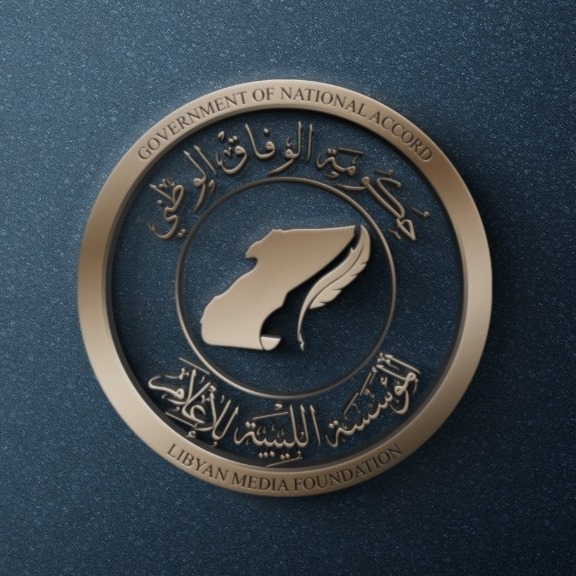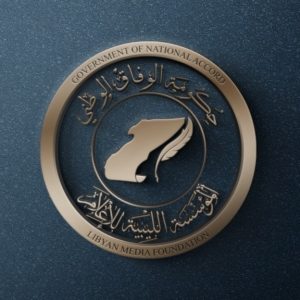By Sami Zaptia.
London, 3 February 2021:
Libya’s state media network of television and radio channels are to be reorganized, unified and rebranded under the acronym: TAL
The move came after the head of the state Libya Media Foundation, Mohamed Baiyu issued a decree (33/2021) yesterday to that effect.
He said the aim of the decision is to unify the management of national media units to end the phenomenon of them operating as isolated islands.
TAL includes all the visual and audio broadcast channels affiliated with the Libyan Media Foundation, funded by public finances within what is known as public media. These are:
- Libya National Channel
- Official Libya Channel
- Libya Al Hayat Channel
- Libya Youth Channel
- Libyan Amazigh Channel
- Al Hidaya Channel
- Libya Sports Channel
- Libya English Channel
- Holy Quran Radio
- Libya International Radio
- Audio radio stations affiliated with the New Media Development Centre “Radio Al Shorouk
TAL will be managed by a temporary steering committee until its organizational and administrative structure is completed. It consists of directors of visual channels and radio stations.
The previous administrative status of the television and audio channels is terminated, and all previous responsibilities of their directors shall be devolved to TAL’s steering committee, as well as the previous independent financial disclosure of the units joining the network.
A unified budget will be drawn up for TAL, and a unified bank account will be opened for it, and its head office will be in Tripoli, followed by main branches in Benghazi and Sabha, with offices where necessary, and its steering committee has the right to open external offices whenever necessary.
Baiyu said the decision to establish TAL aims to unify the management of the Libyan national media units, in order to end the previous phenomenon of isolated islands.
He aims to achieve integration between human, expert and technical capabilities of these channels and radio stations to improve their performance level, organize their discourse, and define the media and visual identity of each, while preserving the identity of each unit of the network.
He revealed that the Libyan Media Foundation had also begun to establish the “Libyan Company for Media Production and Investment” to be the economic financing tool for the national media, in order to achieve the desired independence, end its full dependence on state funding, and provide it with the necessary resources for human and technical development.
Contested appointment and militia arrest
It will be recalled that Baiyu was controversially appointed by Presidency Council head, Faiez Serraj, on 10 October 2020. But the appointment decision was unilateral and did not gain the unanimous support of the rest of the Presidency Council.
Baiyu had worked for a long period in the Qaddafi media machine and was seen as representing the old regime.
Ten days later, Baiyu was kidnapped by the Tripoli Revolutionaries Brigade (TRB) but was later released unharmed.
His appointment is also being challenged in court.
Analysis: State media needs reform
Nevertheless, both Serraj and Baiyu are correct in their broad aim of wanting to reform Libya’s state media.
Its network of TV and radio channels are bureaucratic, overemployed, unproductive, and not fit for purpose. They provide very little media output and what they do produce is of low quality. This has forced viewers and listeners to migrate to private stations inside and outside Libya.
Foreign based private Libyan media controlling the narrative
Unfortunately, private stations outside Libya have often been financed by foreign states with their own agenda for Libya. This has meant successive Libyan governments failed to deliver their messages or narratives to the Libyan public. The different narratives broadcast by externally based Libyan media has often been divisive. It has undermined the contested legitimacy of governments and made the process of state and institutional building more difficult.
It has therefore made it difficult for governments to create a sense of national unity for building a new post-Qaddafi-era state.
Isolated islands
Baiyu’s description of state media stations and channels as ‘‘isolated islands’’ is quite accurate if not an understatement. The state, be it parliament or the government, have no control or input on them. They fail to broadcast parliament or government’s narrative. This reached such an extent that on a number of occasions Libyan governments have attempted to establish TV channels in Tunisia. It was only Tunisia’s refusal to allow its territory to be used in what it saw as an internal Libyan tug-of-war that prevented these projects from launching.
Jobs for the boys
After the 2011 revolution, state media became a source for jobs for the boys, but with hardly anyone turning up to work. With each successive government, political and regional stakeholder appointing their relatives and friends to the various channels. The existing management and staff have also acted as a force against change and internal reform.
The channels also went on to reflect the various political streams rather than the unified and consistent government narrative of the day.
Hence the government found itself lumbered with a huge salary bill for the media sector without having the advantage of a functioning media.
Upcoming elections: informed voter a prerequisite?
With a referendum on the constitution and constitutionally based general elections planned for 24 December this year, a functioning Libyan state media would enhance having an informed voter and electorate. However, the task of reforming what is basically a Qaddafi-era media establishment will not be easy.
Tripoli Libyan government to launch English-language TV channel | (libyaherald.com)
UNSMIL deplores unlawful arrest of Serraj media head Baiyu | (libyaherald.com)









